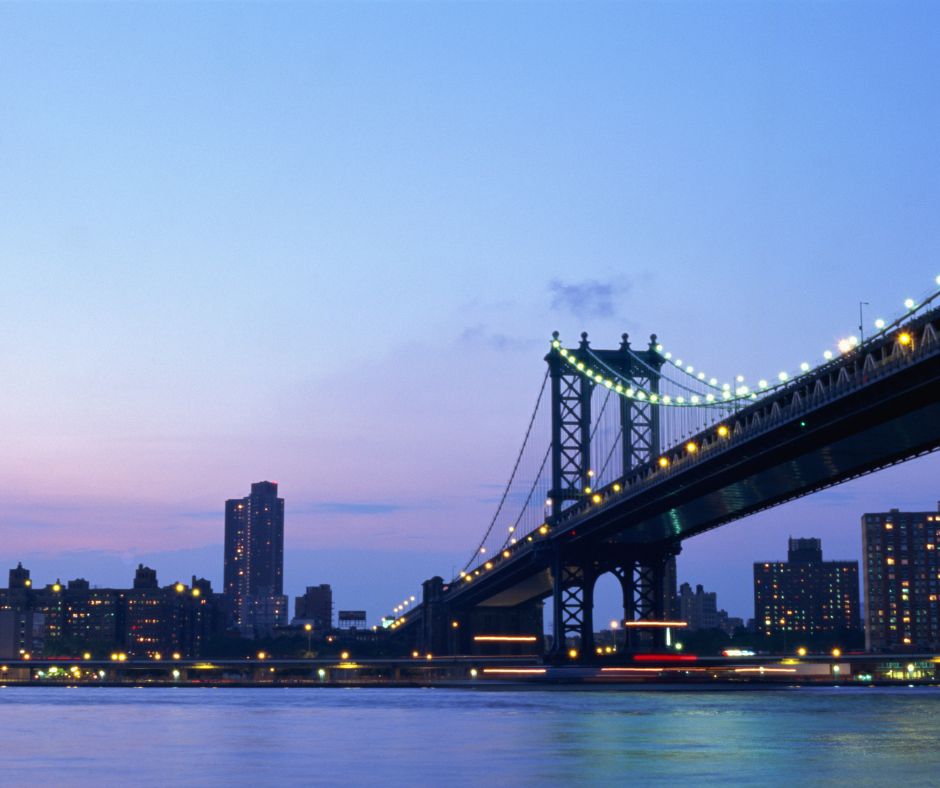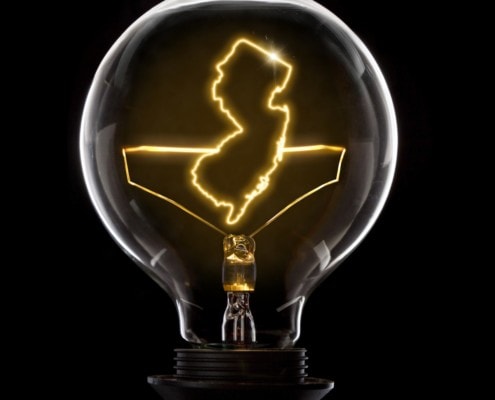Energy Deregulation in New Jersey
New Jersey enacted energy deregulation in 1999, creating a competitive market for electricity and natural gas providers. Before deregulation, you only had one option to purchase energy services – the local utility. With deregulation, energy services are divided into supply and distribution:
- You can choose your energy providers in NJ – this applies for both electricity and gas.
- The local utility delivers energy to your property, charging a distribution fee, but they are not the direct provider.
In other words, you can choose your electricity and gas providers, but each area is assigned a utility company who is in charge of distribution. The local utility delivers energy from all competitive providers. Depending on your location, the electrical grid and gas distribution piping may be operated by a single utility company or by different companies.
New Jersey homes and businesses have the option of not choosing an energy provider. In this case, the local electricity and gas utility also becomes your default supplier. However, you can find lower rates by comparing local electricity and gas providers. In this guide, we will focus on New Jersey electric rates for businesses.
Instantly Compare Commercial Energy Rates in New Jersey:
Enter Your Zip Code to Start
Deregulated Energy Prices in New Jersey
New Jersey has a deregulated energy market, where you can choose your electricity and natural gas providers. Here are the average energy prices in the Garden State, according to the US Energy Information Administration (EIA):
| Deregulated Energy Service | NJ Average Residential Rate | NJ Average Commercial Rate |
| Electricity | 17.54 cents/kWh | 13.74 cents/kWh |
| Natural Gas | $13.16 per thousand cubic feet | $11.42 per thousand cubic feet |
*Latest data available from the US EIA as of February 2024.
For comparison, here are the US average energy prices:
| Energy Service | US Average Residential Rate | US Average Commercial Rate |
| Electricity | 16.19 cents/kWh | 12.60 cents/kWh |
| Natural Gas | $13.36 per thousand cubic feet | $9.67 per thousand cubic feet |
*Latest data available from the US EIA as of February 2024.
New Jersey gets most of its electricity from gas and nuclear power plants, which account for 91% of local generation. The commercial sector represents 50% of electricity consumption, followed by the residential sector at 40%. The industrial and transportation sectors account for the remaining 10% of consumption.
New Jersey ranks among the top 10 states with the lowest energy consumption per dollar of GDP, and 11th among the states with the lowest energy consumption per capita. In other words, NJ is one of the most energy efficient states with respect to its population and economy.
Commercial Electric Suppliers in New Jersey
Here are some commercial electricity suppliers who operate in New Jersey. The table also shows their availability in each of the four utility service territories:
| Deregulated Electricity Provider | ACE Area | JCP&L Area | PSEG Area | RECO Area |
| AEP Energy | ✅ | ✅ | ✅ | |
| Ambit Energy | ✅ | ✅ | ✅ | ✅ |
| Champion Energy Services | ✅ | ✅ | ✅ | |
| Choice Energy | ✅ | ✅ | ✅ | ✅ |
| Constellation New Energy | ✅ | ✅ | ✅ | |
| Direct Energy | ✅ | ✅ | ✅ | ✅ |
| Discount Power | ✅ | ✅ | ✅ | ✅ |
| Green Mountain Energy | ✅ | ✅ | ✅ | ✅ |
| Octopus Energy | ✅ | ✅ | ✅ | ✅ |
| NRG (Reliant Energy) | ✅ | ✅ | ✅ | ✅ |
The NJ Power Switch website from the state government has the complete list of all the electricity providers who operate in each of the four electric utility territories:
Local Electric Utility Companies in New Jersey
Thanks to deregulation, you can choose your electricity provider in New Jersey. However, the utility company is assigned by geographic location. This is much more efficient than having competing power grids – with an excessive number of power lines and poles.
New Jersey has four electric utility companies that cover most of its territory:
- Atlantic City Electric (ACE)
- Jersey Central Power & Light (JCP&L)
- Public Service Electric & Gas (PSEG)
- Rockland Electric Company (RECO)
Here is a map showing the service territory of each utility company:
https://www.arcgis.com/home/item.html?id=d23845cc51454ee59affd226cff3fcd5
As you can see in the map, some small areas of NJ are served by municipal utilities or electric cooperatives. If your home or business is located in these areas, the local utility is the only electricity provider – you cannot choose other options. However, electric choice is available in most of the Garden State.
Contact Your Local NJ Electric Utility Provider
PSEG
PSEG, otherwise known as the Public Service Electric and Gas Company, was established in 1903 in New Jersey. They are responsible for providing gas and electricity to the six largest cities in the state. Find a nearby customer service located here.
Address: 651 Main Ave, Passaic, NJ 07055
Contact: (800) 436-7734
Jersey Central Power and Light
Jersey Central Power and Light if you are a resident of the northwestern and eastern part of New Jersey, then chances are you get your power from JCP&L. as they are the main provider of electricity in those areas.
Address: 300 Main St, Allenhurst, NJ 07711
Contact: 1-800-662-3115
Atlantic City Electric
Atlantic City Electric was established in 1924 and services the southern part of New Jersey. Today they are serving almost 600,000 customers, and they continue to grow.
Address: 349 Hurffville Crosskeys, Turnersville, NJ 08012
Contact: (800) 642-3780
Rockland Electric
Rockland Electric currently serves almost 62,000 residents of northern New Jersey. Before the deregulation in the state was in effect, the company was a full-service electricity company. Today, they mostly do transmission and distribution of power in the northern part of New Jersey.
Address: 1 Lethbridge Plaza, Mahwah, NJ 07430
Contact: (877) 434-4100
Types of Electricity Plans in New Jersey
NJ commercial electricity plans can be classified into several types based on their contract terms:
- Fixed-rate plans: Your electricity price is fixed for the entire contract term, which normally ranges from 6-60 months. However, these plans normally have an early termination fee, which can be very high.
- Variable-rate plans: Your electricity price can change every month depending on how energy markets are behaving. However, you can switch to another electricity plan at any time without penalties.
- Green energy plans: If you choose these electricity plans, all your energy comes from renewable sources such as wind and solar power. Green electricity plans are fairly common in New Jersey, and you can find them in fixed-rate and variable-rate versions.
Regardless of the options you are comparing, make sure you read the fine print before choosing an electricity plan for your business. Many plans have additional fees that are not evident initially, or complex tariffs that increase drastically at some consumption levels.
Also keep in mind that all retail electricity providers must be approved by the New Jersey Board of Public Utilities (NJBPU). If you are offered an electricity plan from a provider who is not listed on NJ Power Switch, it could be a scam.
Why You Should Choose an Electricity Supplier in NJ
Choosing a commercial electricity plan is not mandatory in New Jersey, but strongly recommended. If you don’t choose a provider, you get the Standard Offer Service (SOS) from your utility company, also known as the Price to Compare (PTC). The PTC electric tariff is higher than many of the options you can find on the market, which means your business is missing out on potential electricity savings.
Here you can check the latest PTC tariffs for the four electric utility companies in New Jersey:
- Atlantic City Electric (ACE) Price to Compare
- Jersey Central Power & Light (JCP&L) Price to Compare
- Public Service Electric & Gas (PSEG) Price to Compare
- Rockland Electric Company (RECO) Price to Compare
These are the default electric tariffs for consumers who don’t choose an electricity provider. If you choose an electricity plan with kWh prices below these tariffs, you will save on monthly power bills. For example, if your PTC is 11 cents/kWh and you find a commercial electricity rate of 9 cents/kWh, you are saving 2 cents/kWh. For a company using 10,000 kWh per month, the savings would be $200/month and $2,400/year.
When comparing New Jersey electric rates, make sure you choose a provider who offers a tariff below the default rate charged by the local utility.
Commercial Energy Incentives in New Jersey
As mentioned above, New Jersey is one of the most energy efficient states. Energy consumers have access to multiple energy efficiency programs, such as the following:
| NJ State Energy Incentive Program | Description |
| Net Metering and Interconnection | Investor-owned utilities and energy suppliers are required to offer solar buyback tariffs. Net metering is available for residential, commercial and industrial users. |
| New Jersey’s Clean Energy Program (NJCEP) | The NJCEP provides technical assistance, financial incentives and energy training for all types of energy consumers. |
| Solar Energy Sales Tax Exemption | Solar energy systems purchased by residential, commercial and industrial users are exempt from the 6.625% sales tax. |
| Property Tax Exemption for Renewable Energy Systems | This incentive is available for residential, commercial and industrial energy consumers. If they install a renewable energy system to cover on-site consumption, they don’t pay taxes for the corresponding increase in property value. |
| Edison Innovation Green Growth Fund (EIGGF) | The EIGGF offers loans of up to $2 million for businesses who invest in energy efficiency measures and renewable energy systems. The loans have an interest rate of only 2% and repayment period of five years. |
| Successor Solar Incentive (SuSI) Program | Energy consumers who use photovoltaic systems earn a Solar Renewable Energy Certificate (SREC-II) for every 1,000 kWh generated. SREC-II payments from commercial users range from $85 to $110, depending on project features. |
| Garden State Commercial Property Assessed Clean Energy (C-PACE) | C-PACE loans can be used for energy improvements in commercial buildings. Monthly payments are charged along with property taxes and the repayment period is up to 30 years. |
NJ businesses can lower their energy costs by choosing favorable gas and electricity rates, while taking advantage of energy efficiency and renewable energy incentives. This way you are not only reducing your energy prices, but also the total consumption billed by your utility meters.
Quick Facts about Energy Deregulation in New Jersey
- New Jersey is home to the Oldest Nuclear Power Plant. The Oyster Creek Nuclear Generating Station, which started operating in 1969, is currently the oldest nuclear power plant in the US and is located in New Jersey.
- Imports Natural Gas. New Jersey lacks fossil fuels, and so they ship their natural gas from Pennsylvania through pipelines and they get their coal supply from West Virginia, Pennsylvania and Virginia.
- Reformulated gasoline. The state of New Jersey requires residents to use a special kind of gasoline mixed with ethanol to help lessen greenhouse gasses.
- Regional Greenhouse Gas Initiative (RGGI) member. As part of the RGGI, New Jersey, together with the other members, NJ is capping greenhouse gas emissions as best they can.
- Automobile fuel economy standard. Just like California, New Jersey has implemented a standard on fuel efficiency for new vehicles. This is to ensure that vehicles will not contribute significantly to gas emissions.
Map of US Energy Deregulation
New Jersey is one of 26 US States that have some form of energy deregulation whether it be electricity, natural gas or both. Use our interactive map to get more information on deregulated energy states in America.


